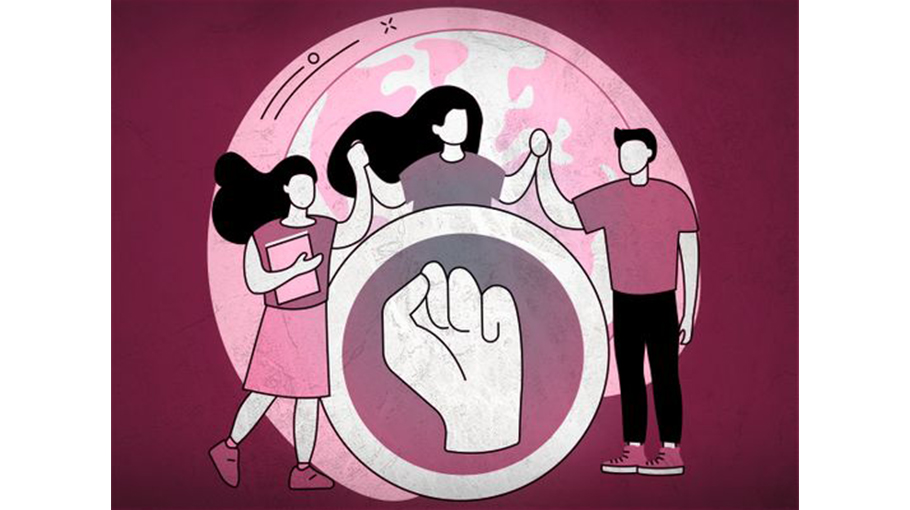Youth empowerment must for a sustainable tomorrow


Two centuries ago, the Earth’s climate was in a natural balance. The amount of carbon dioxide in the air was stable at around 280 parts per million (ppm). But then, the Industrial Revolution began and changed everything. Some countries, mainly in Europe and North America, started to burn coal and other fossil fuels to power their factories and machines.
This increased the emissions of carbon dioxide and other greenhouse gases, which trap heat in the atmosphere and cause global warming. These countries became richer and more powerful, while others, especially in Asia and Africa, remained poor and underdeveloped. They had little access to industry or technology, and their natural resources were often exploited by the richer nations without their consent or benefit.
Two centuries later, the situation has not improved much. The concentration of carbon dioxide in the atmosphere has reached 421 ppm, a level that is dangerously high for life on Earth. The effects of climate change are already visible and devastating: melting ice caps, rising sea levels, extreme weather events, biodiversity loss, food insecurity, and more.
Addressing the challenges of climate change
Last month, United Nations Secretary-General António Guterres echoed this sentiment. He pointed out some of the lethal climate events — from scorching temperatures to raging fires and torrential downpours — that have occurred across the globe this July, which has already been confirmed as the warmest month ever recorded so far. The ones who will suffer the most from this crisis are the young people, who have inherited a damaged planet from their elders. But they are not just passive victims; they are also active agents of change.
They are leading the global movement to demand more action from governments and other actors to tackle climate change. They are using their skills and creativity to raise awareness, educate others, and implement solutions. They are not only fighting for their own future, but also for the future of all generations. Young people have many tools and opportunities to make a difference. They have access to education, technology, and science that can help them understand and address the challenges of climate change. They have also been given a voice and a space in the international arena, where they can influence the decision-making processes that affect their future.
For example, in the Conference of the Parties (COP) to the United Nations Framework Convention on Climate Change (UNFCCC), which is the main forum for global climate negotiations, youth have been organising and participating in various events and activities, such as the Conference of Youth (COY), which is an annual event that prepares young people for their participation in the COP, and the Youth and Future Generations Day, which is a dedicated day for youth to showcase their initiatives and perspectives on climate change.
The purpose of this day is to draw attention
to the cultural and legal issues surrounding
youth, and to encourage their
participation in decision-making
processes that affect them
The theme for International Youth Day 2022 was “Intergenerational Solidarity: Creating a World for All Ages”. And the theme for International Youth Day 2023 is “Green Skills for Youth: Towards a Sustainable World”. This theme highlights the need for developing and enhancing the knowledge, abilities, values and attitudes of young people that enable them to live in, develop and support a sustainable and resource-efficient society
-Ambitious and inclusive climate action
Youth have also been engaging with different stakeholders, such as governments, civil society, media, and businesses, to raise their voices and influence the outcomes of the COP. In COP28, youth are expected to play an even more important role in advocating for more ambitious and inclusive climate action.
To recognise and celebrate the potential of youth as partners in today’s global society, the United Nations designated August 12 as International Youth Day in 2000.
The purpose of this day is to draw attention to the cultural and legal issues surrounding youth, and to encourage their participation in decision-making processes that affect them.
Each year, the day has a different theme that reflects the current challenges and opportunities for youth. The theme for International Youth Day 2021 was “Transforming Food Systems: Youth Innovation for Human and Planetary Health”.
The theme for International Youth Day 2022 was “Intergenerational Solidarity: Creating a World for All Ages”. And the theme for International Youth Day 2023 is “Green Skills for Youth: Towards a Sustainable World”. This theme highlights the need for developing and enhancing the knowledge, abilities, values and attitudes of young people that enable them to live in, develop and support a sustainable and resource-efficient society.
These skills include technical skills that facilitate the use of green technologies and processes, as well as transversal skills that foster environmentally sustainable decisions in work and life.
The theme also recognises the importance of youth as agents of change, entrepreneurs and innovators who can contribute to the green transition and the achievement of the Sustainable Development Goals (SDGs).
Abdullah Belhaif Al Nuaimi is a former UAE minister of Infrastructure Development and for Climate
Change and Environment.
Source: Gulf News


